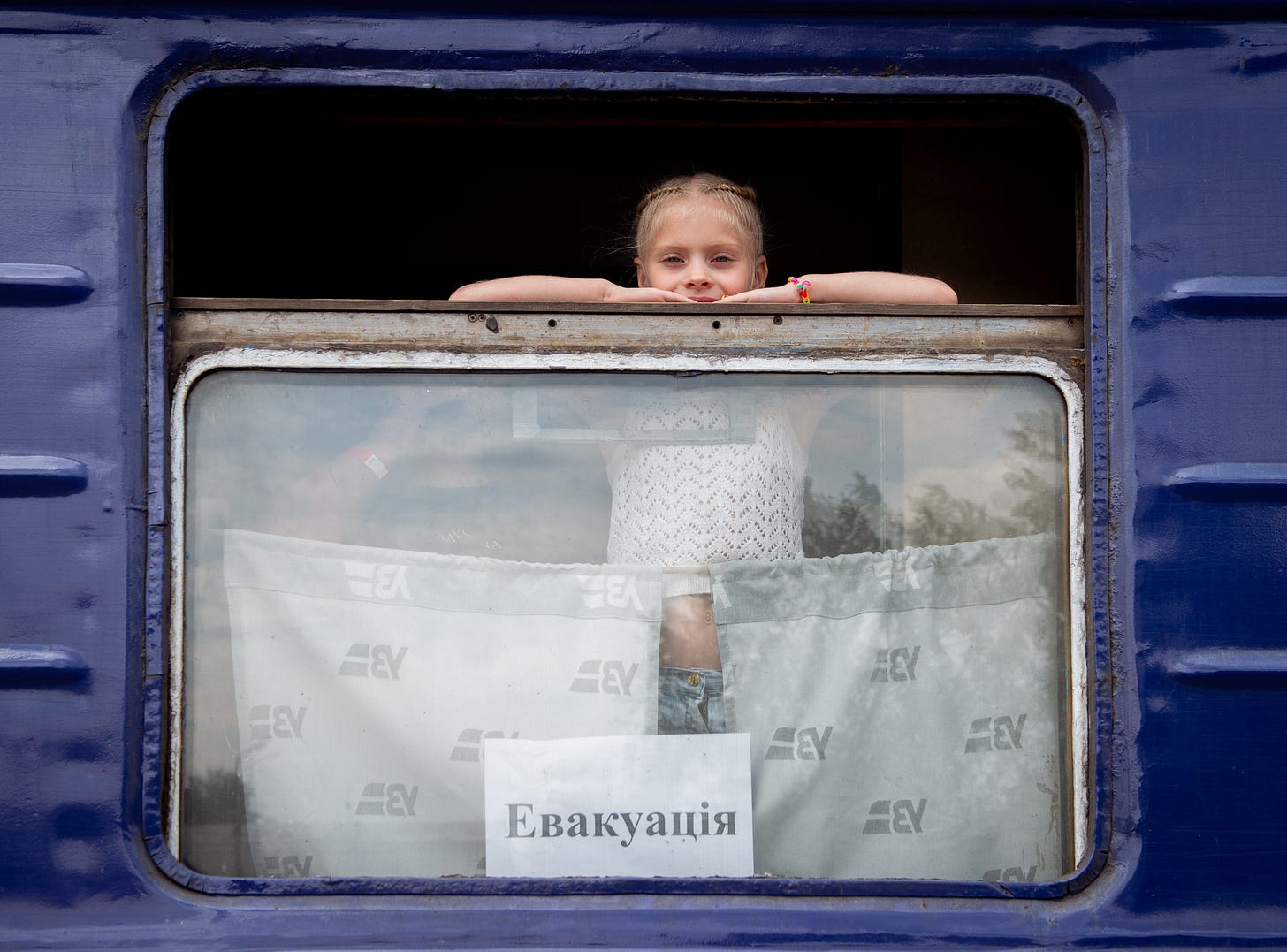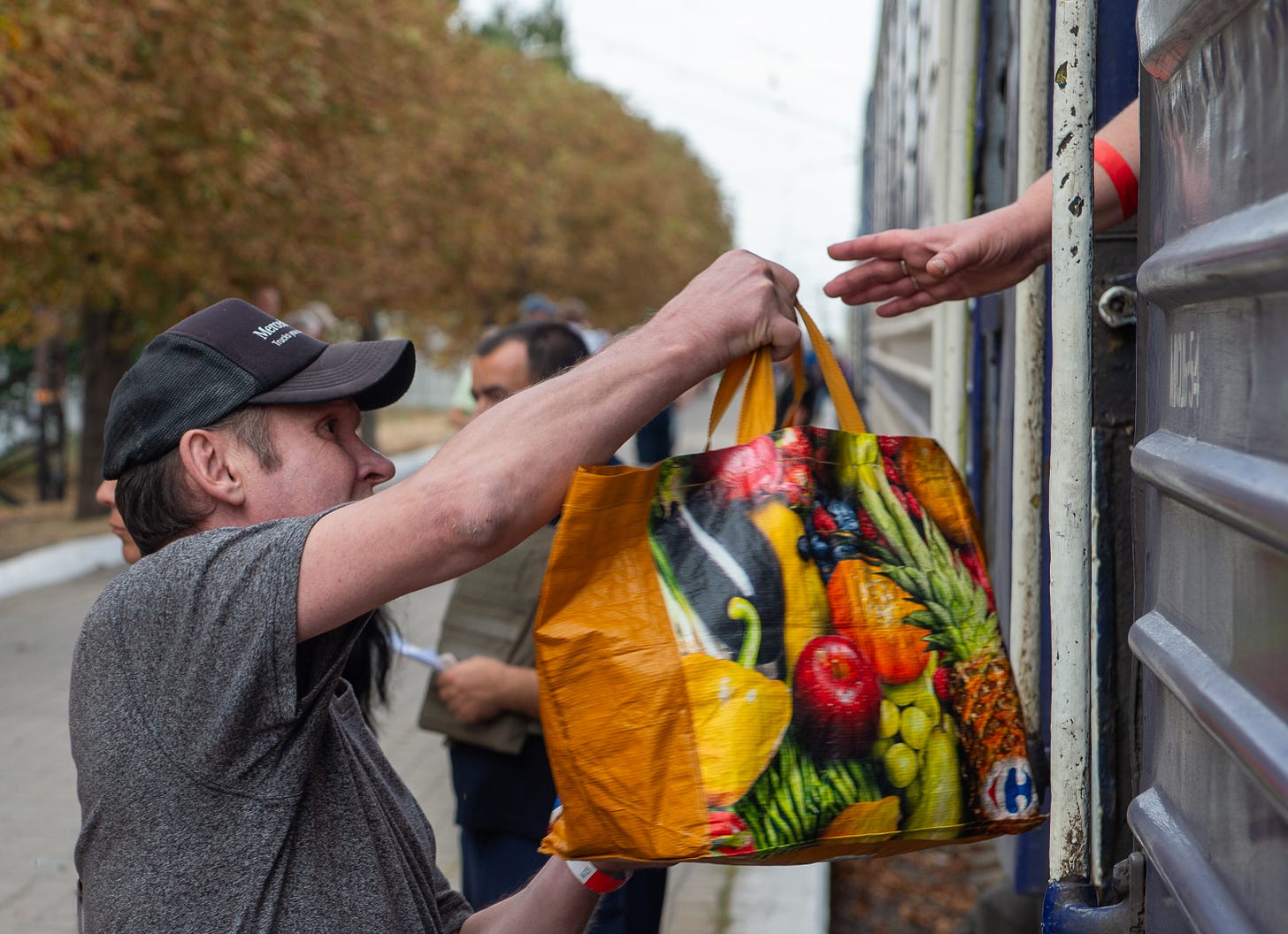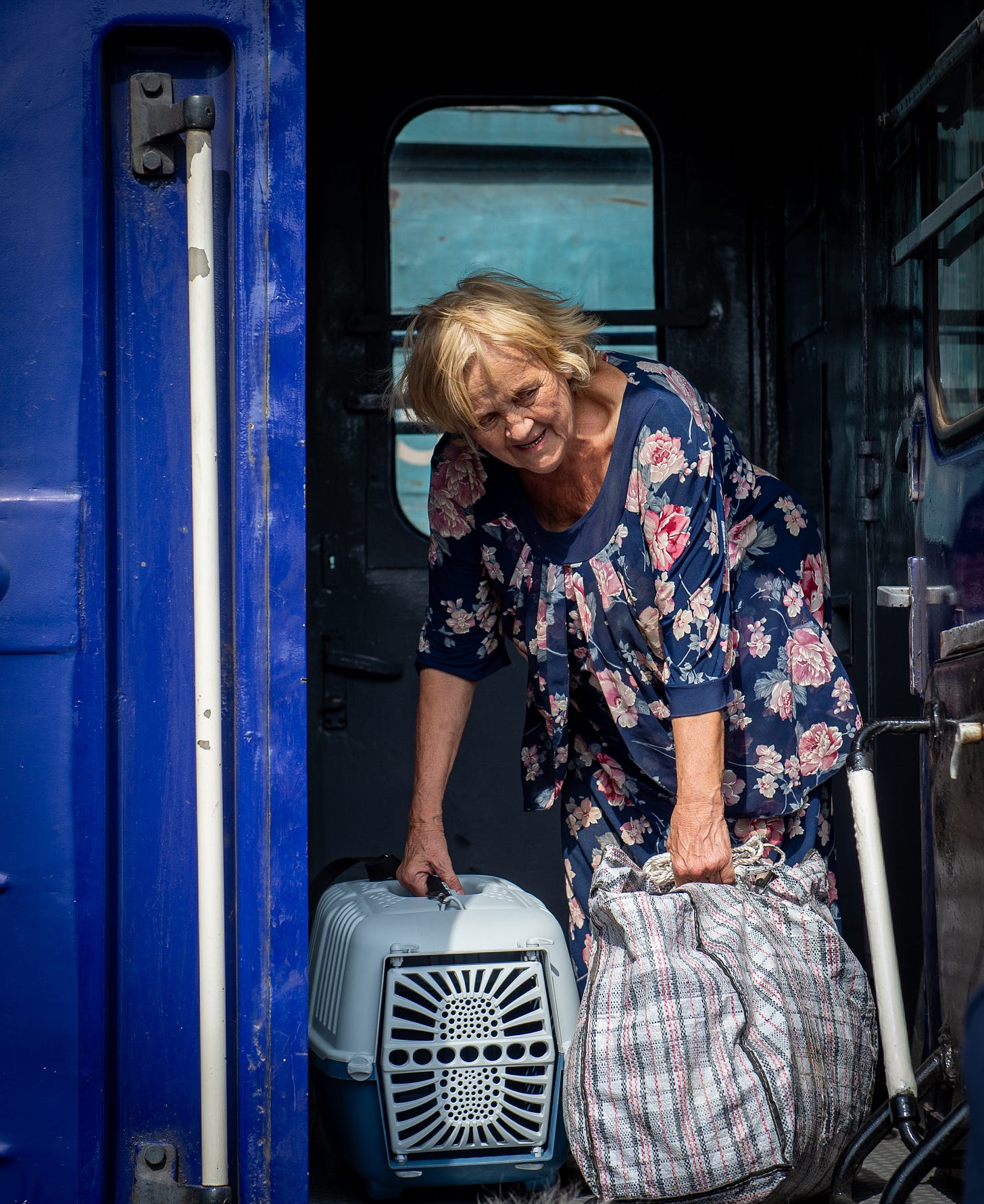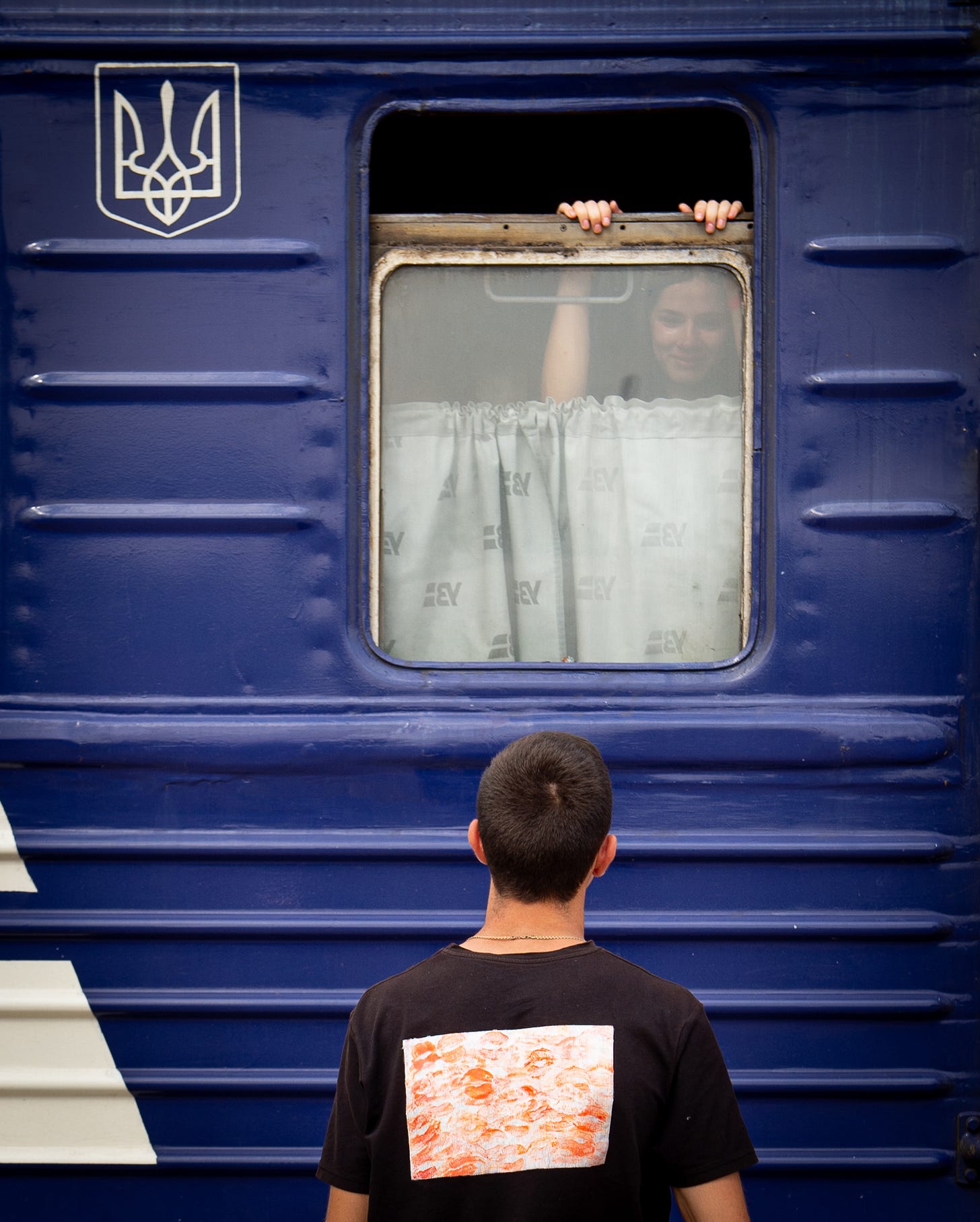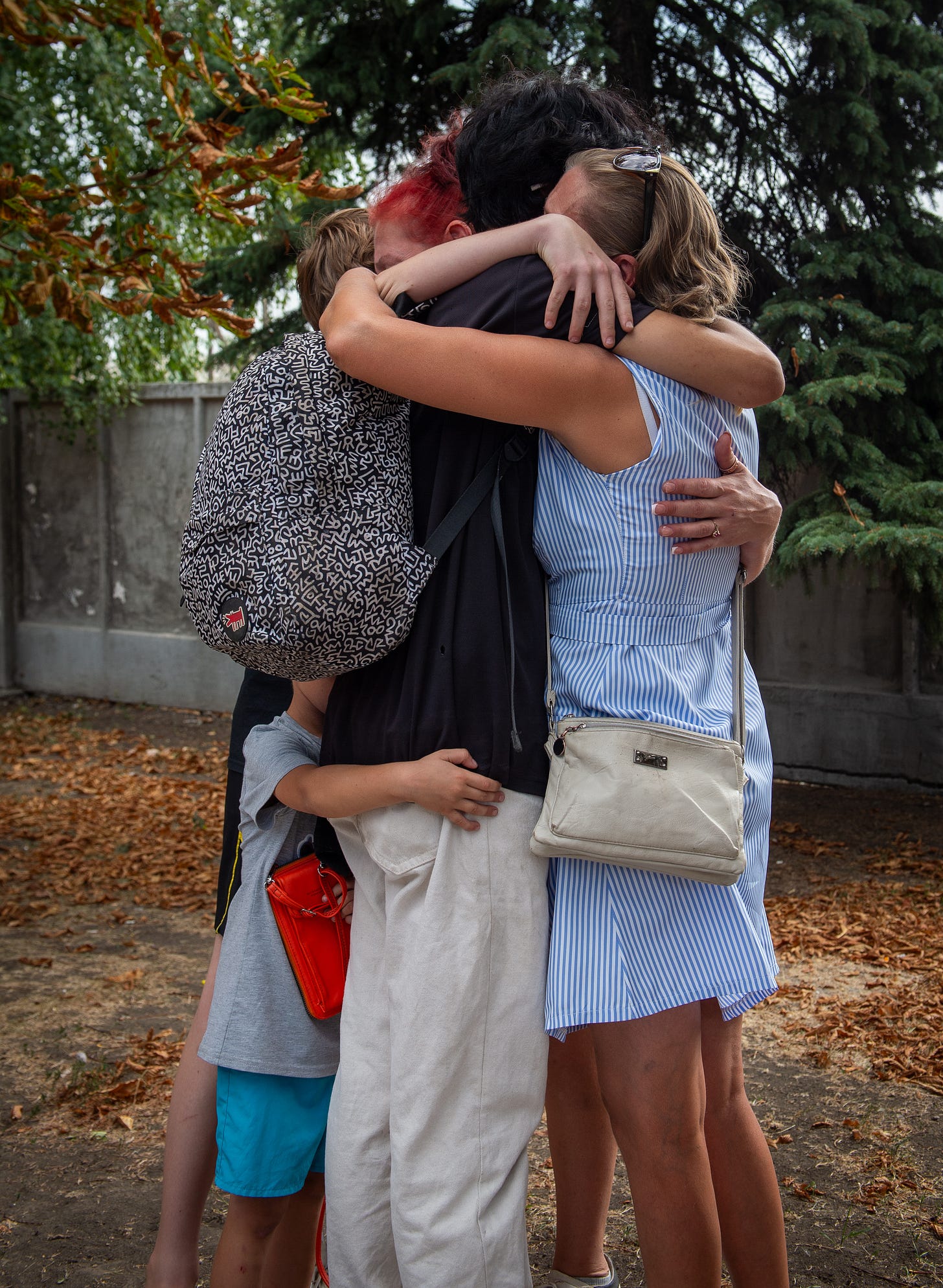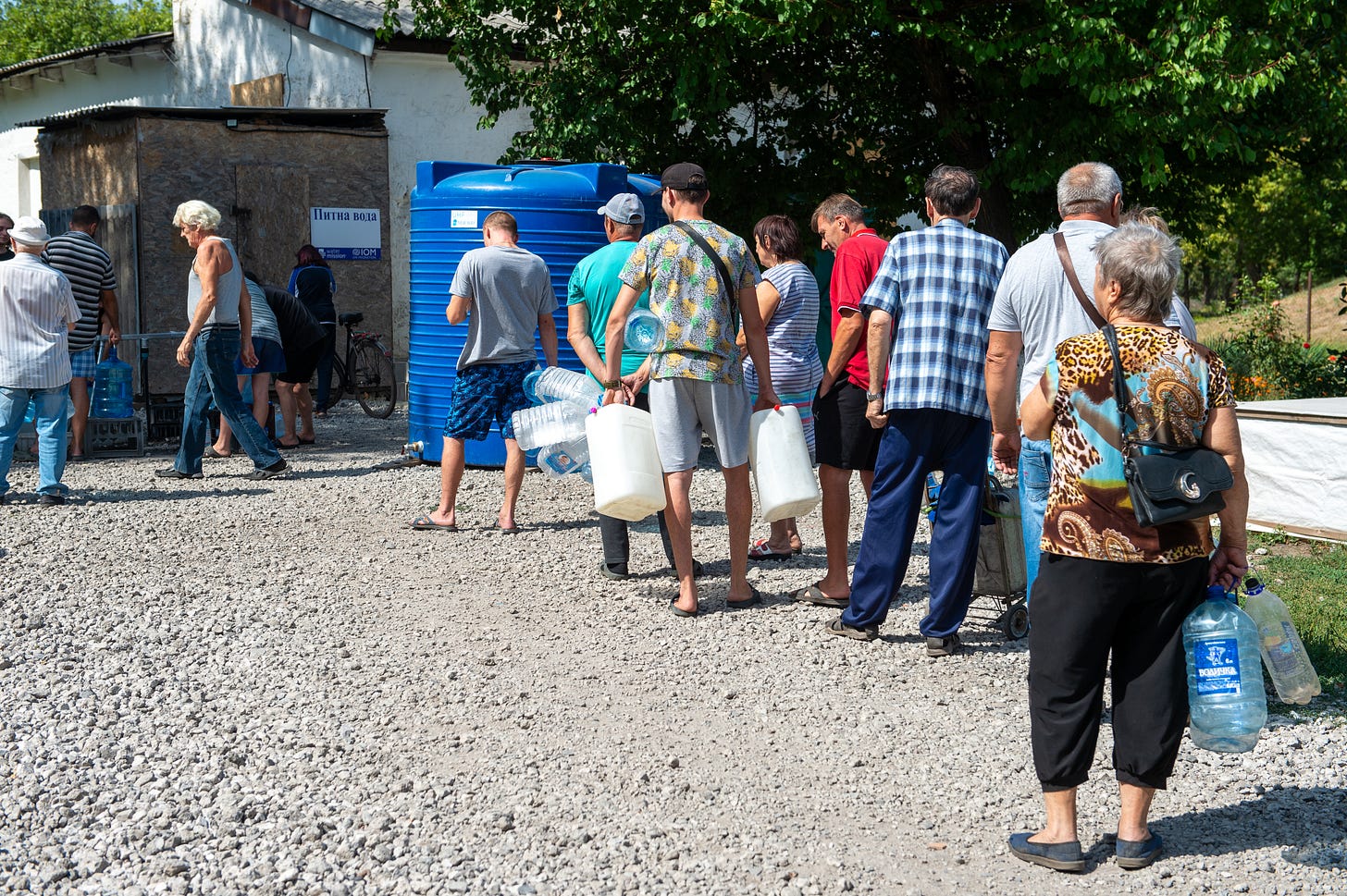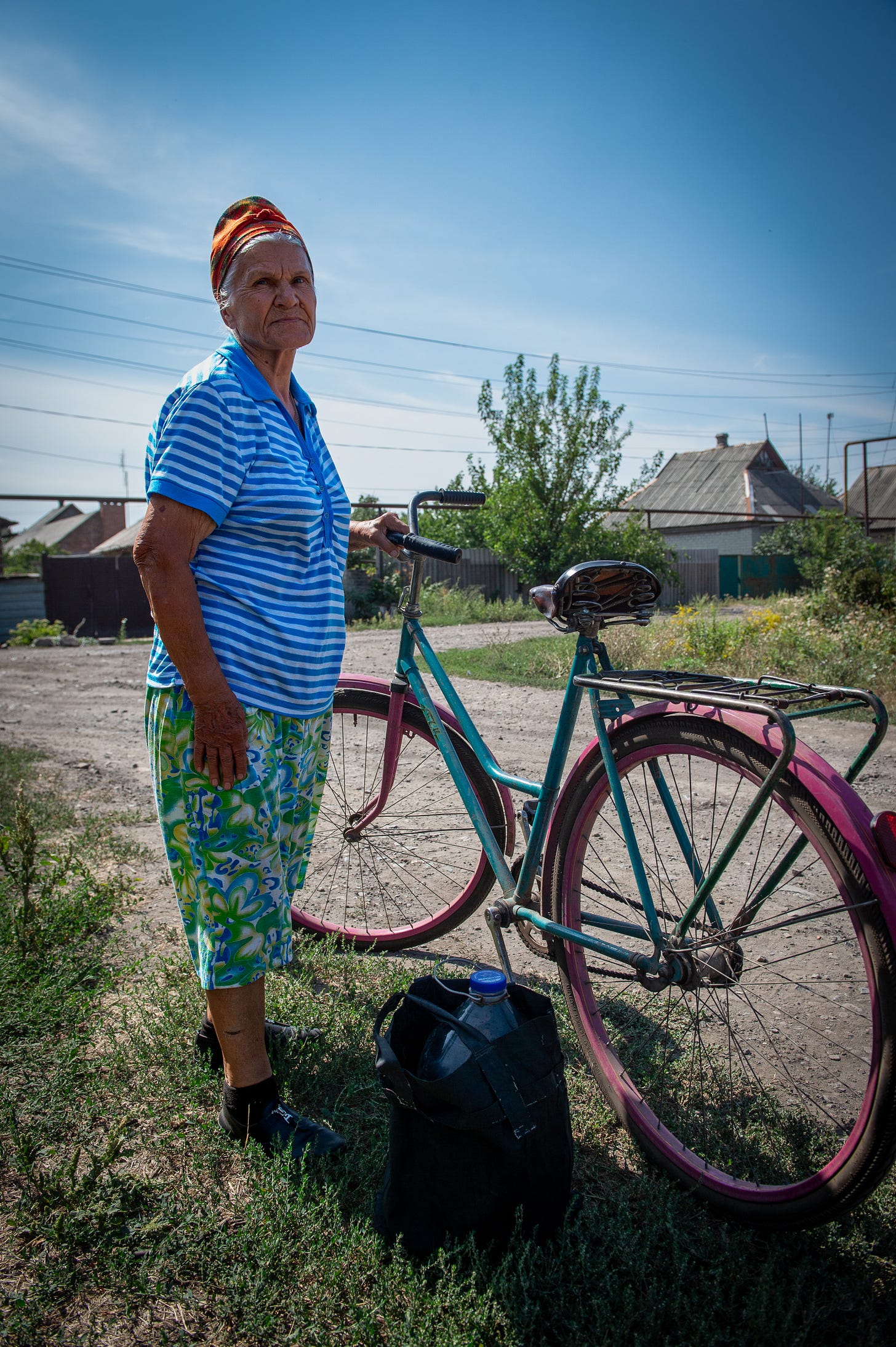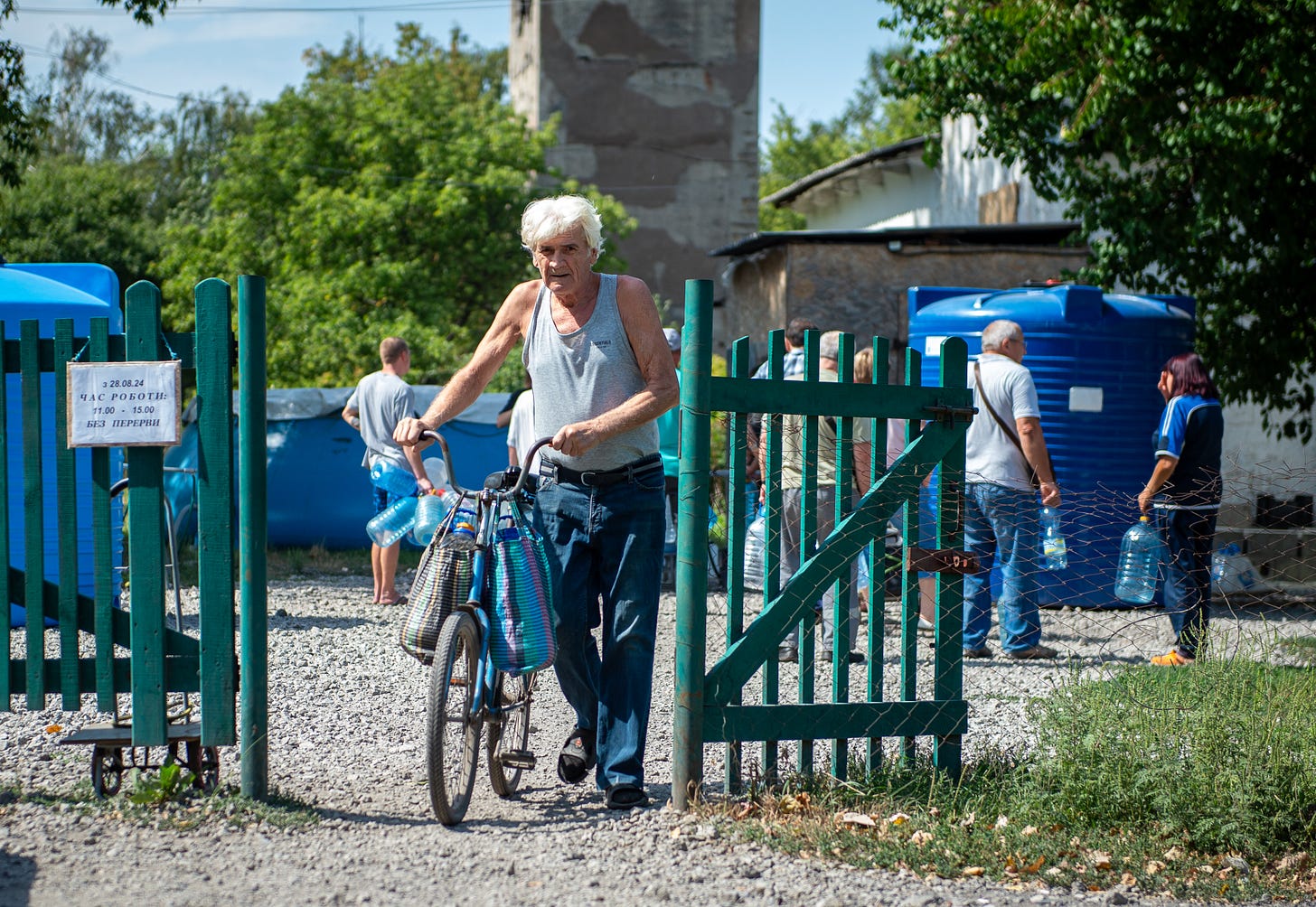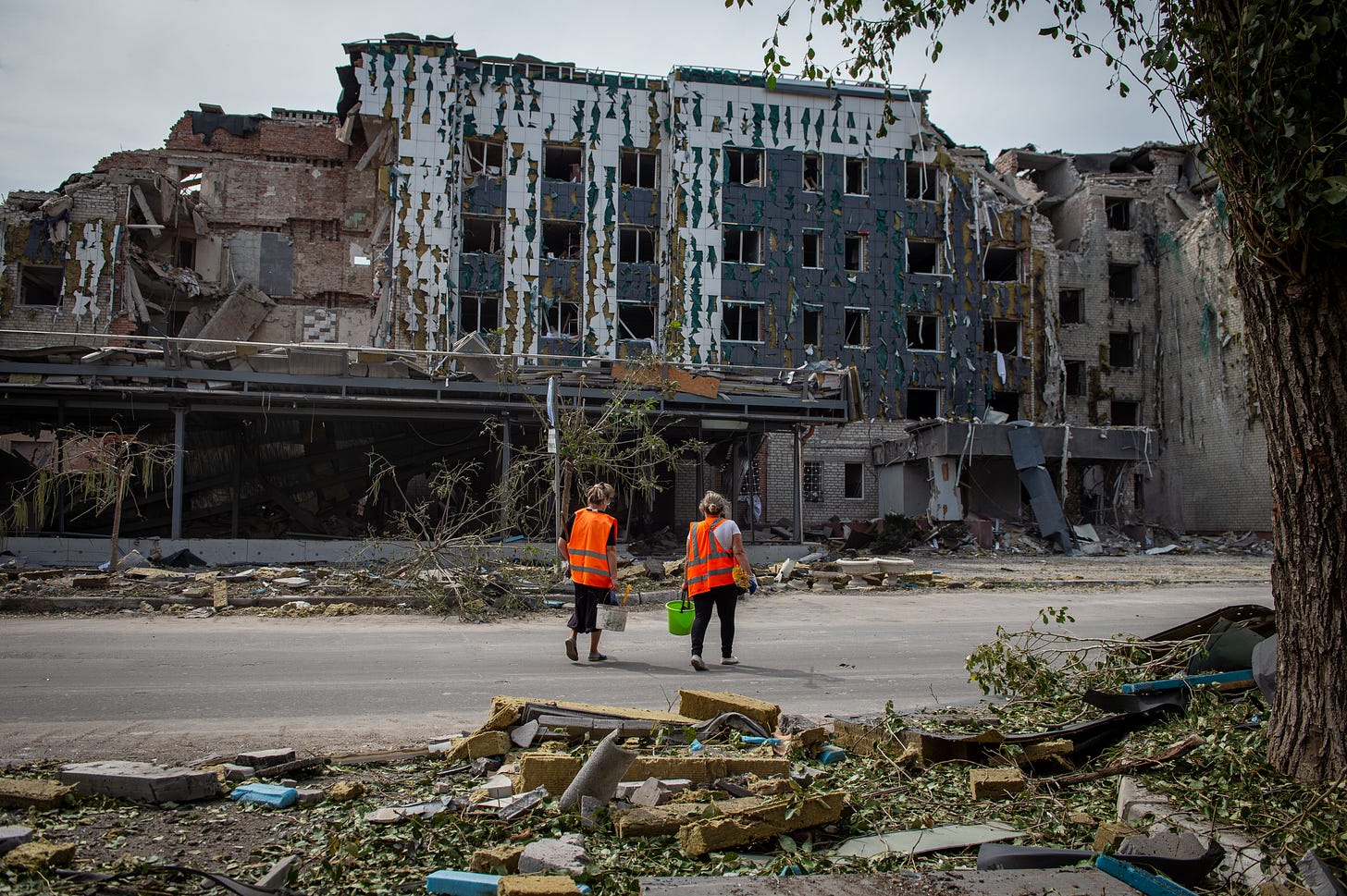The late August heat appeared to mock the people crowded onto Platform One of Pokrovsk’s sprawling railway station. In better days, the waiting train would have hauled them to summer Dachas on the Black Sea or the cooling heights of the Carpathian Mountains in Ukraine's southwest.
Instead, as I watch grim-faced fathers desperately pulling uncomprehending toddlers tight to their chests for a departing cuddle, I realise for many of these families, these are the final moments together they will ever share.
The Russian army, now only six kilometres away, continues its relentless march west in Ukraine’s Donbas region and their city, Pokrovsk, lies directly in its path. Other cities once in this situation, Bakhmut, Avvdika, and Mariupol, are now little more than ghostly shells. The people here understand the fate awaiting their lives.
Arriving at the station, George Llewelyn and I passed large billboards, blank, except for a single word in bold red that reads "EVACUATE." The same word is printed on sheets of A4 paper and stuck to each carriage window.
In the first flushes of young love, teenagers hold each other silently, waiting for the final whistle that will tear them apart, often forever. The young man will fulfil his duty by taking up arms and protecting his city, their home. The young lady will join the millions of other fathers, mothers, wives, and sweethearts in the agonising wait for news from the front.
Artillery shells explode in the near distance, and for a moment, people freeze. Memories of the Russians attacking an evacuation train in Kramatorsk in the early days of the war remain fresh.
Sixty-three souls, including nine children, were killed that day. One hundred fifty-one others were wounded.
As departure time draws closer, the families gather in tighter groups. They hug, touch and caress as if committing the moment to a precious box of memories that they may have to carry through the rest of their lives.
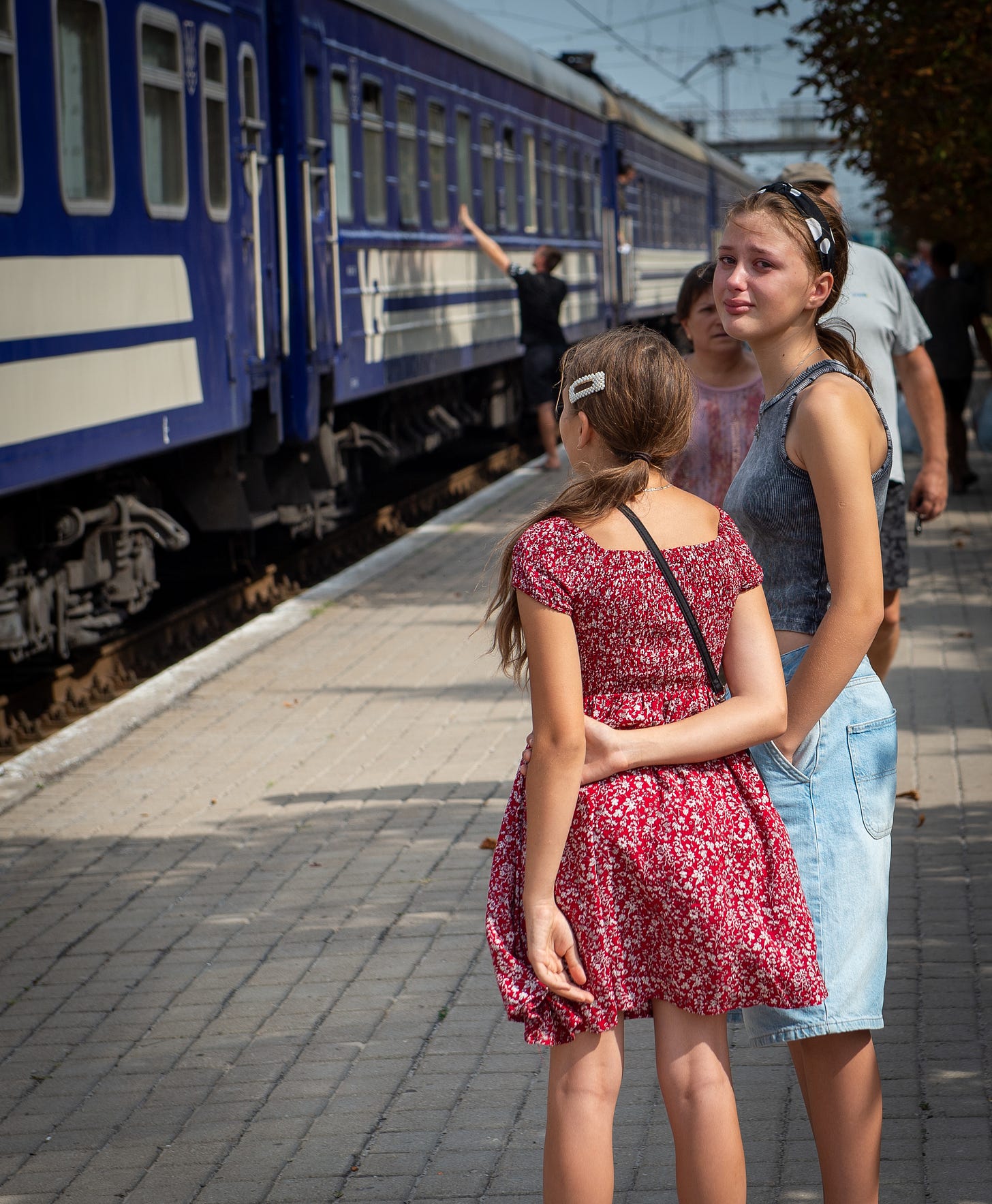
The struggle to maintain a sense of dignity is writ large on their faces, but on the order to board the train for departure, the facade crumbles and the raw emotion of final separation is on full display.
Children cry out for their fathers as distraught mothers struggle to get their kids onto the train. Tiny hands poke through the open slats of the windows. Kisses press against the indifferent glass, and a thousand hearts break as the train wheels imperceptibly rotate. They begin their journey down the well-worn tracks to the mournful tones of a train whistle.
The fundamentals for survival in Pokrovsk are slowly disappearing. Once taken for granted, water is now available to many, only in daily deliveries from aid organisations.
At one water station, and to the sounds of a police announcement blasted over a tannoy urging people to evacuate immediately, queues of people wait patiently in the 35-degree heat.
One pensioner-aged lady struggles to fill two 5-litre plastic containers and then hauls them into a shopping bag tied to the handlebars of her brightly painted bike for the long push home.
Around 3 a.m. that evening, our apartment block was rocked by the compression blasts of five almighty explosions. The following morning, we investigated only to find a hotel less than 500m from the rail station had been annihilated.
The exhausted DSNS (Ukrainian Rescue Services) attending the scene told us two S300 air defence missiles, repurposed to hit ground targets, had hit the building. When asked about casualties, they would neither confirm nor deny. Their saddened, drawn faces told us all we needed to know.
On our fourth night in Pokrovsk, the sounds of artillery grew steadily louder as Russian forces closed in. It seems now that it’s not a case of whether the Russians will take the city, only when.


